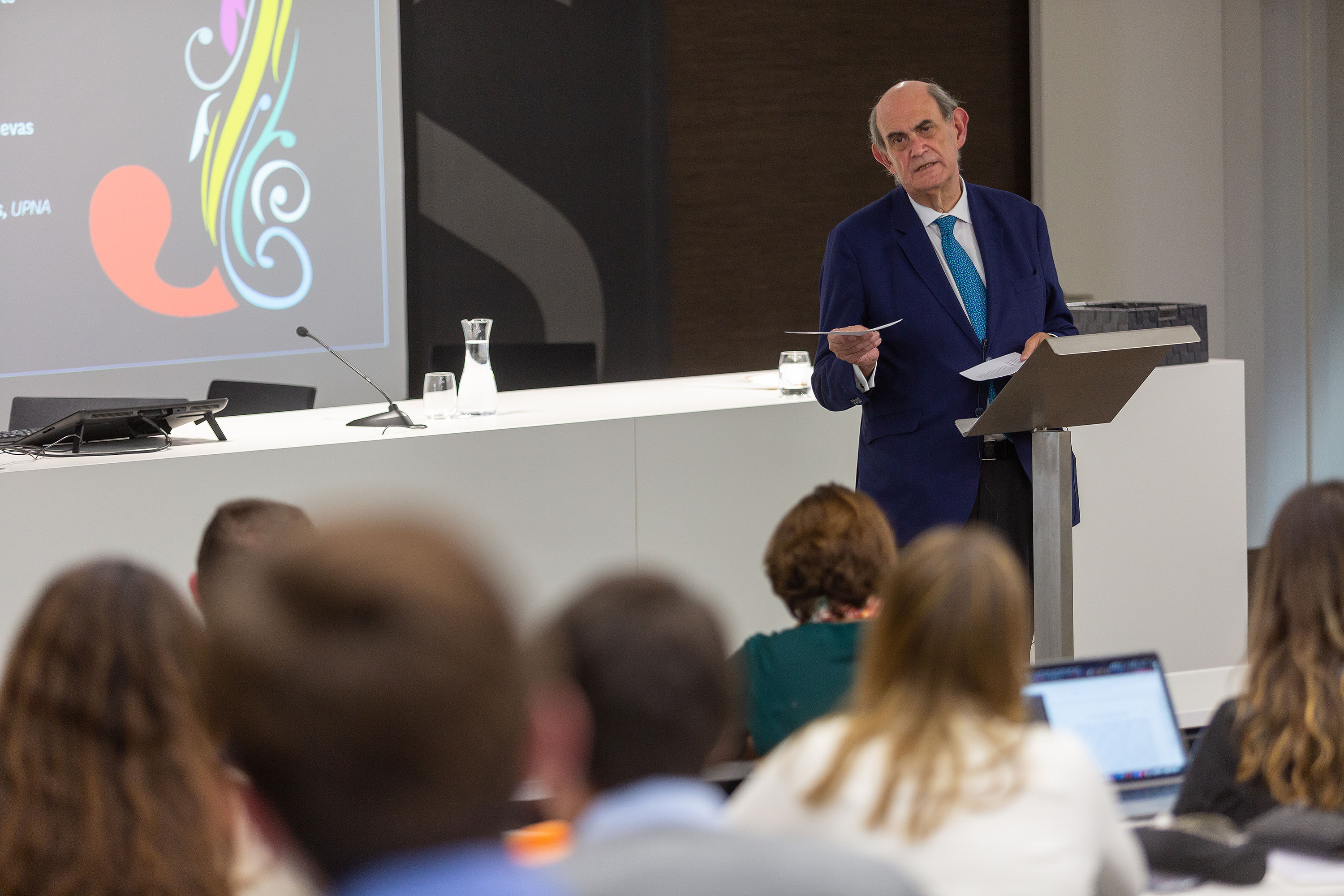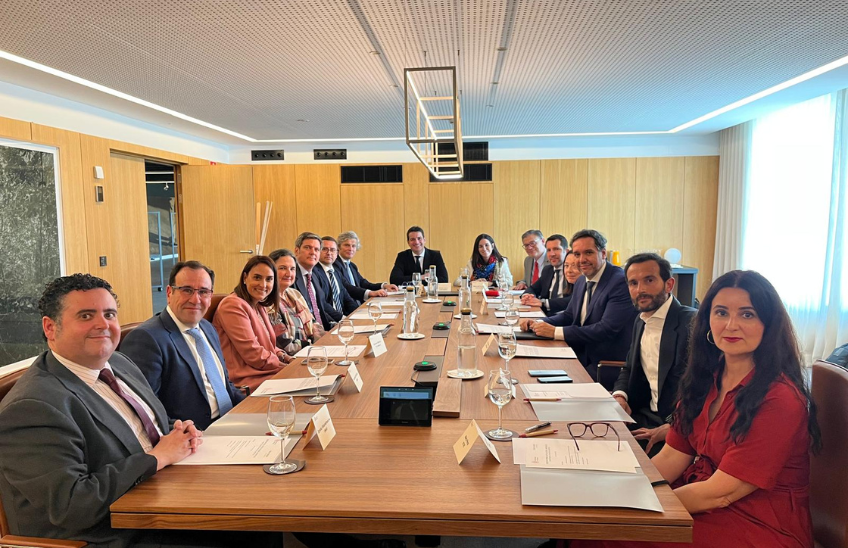"The pandemic has reinforced the need for a comprehensive reform of the parliamentary rules of procedure".
Ignacio Astarloa, lawyer of the Spanish Parliament, inaugurated the XXI conference of the classroom of Parliamentary Law of the University.

FotoManuelCastells/Ignacio Astarloa, during his speech at the XXI conference of the classroom de Derecho Parlamentario.
05 | 11 | 2021
"If the pandemic has reinforced anything, it is the need to undertake a comprehensive and in-depth reform of parliamentary rules of procedure". consultant Ignacio Astarloa , a member of the Spanish Parliament and an international expert on public law issues, inaugurated the XXI conference of classroom of Parliamentary Law, organised by the School of Law of the University of Navarra, at partnership with the Parliament of Navarra.
With degree scroll, La institución parlamentaria en un tiempo inquietante, Ignacio Astarloa made it clear to the audience that the problems in the functioning of the Cortes Generales are not new, nor have they been generated by the Covid 19 pandemic, but it has accentuated them. "The pandemic has twisted Parliament to the point of shutting it down and turning the executive power into a protagonist and omnipotent power," he said." Article 116 - which regulates the state of alarm - does not speak of closing the Cortes, but on the contrary, it speaks of the special role that Parliament must play to control the power of the Executive in an extraordinary status ."
Astarloa recalled that the Constitutional Court has declared the declaration of the two states of alarm unconstitutional and that the interpretation that has been given to this measure "has diminished to unreasonable extremes the role that Parliament should play, which has become a secondary and subordinate accompaniment to the Government's decrees".
Ignacio Astarloa lamented other issues that highlight the need for reforms in the institution: the malfunctioning of telematic voting - when votes are taken before the law is even debated; the predominance of the particular interests of the actors, with the abuse of majorities or the filibustering of minorities; the predominance of quantity over quality; and the scarcity of resources. Astarloa also pointed to the resource to govern by decree-law instead of drafting laws and called for a more relaxed discussion and more time for regulatory texts: "Laws are not made in a week", he said. He also highlighted the 'partitocracy' that reigns in Parliament today: "The leading role is not held by individuals, but by political parties; it is not held by MPs, but by parliamentary groups". He lamented the disrepute that, in his opinion, the institution is experiencing. "Parliament has become a stage for the degradation of manners, language, informalism and the loss of respect for other branches of government".
Parliament's values
Astarloa recalled that in 2015, the traditional bipartisanship disappeared. Today we find ourselves with a fragmented Parliament where the reforms that were promised at the time have not been undertaken, he added. "On the contrary, we law professors have seen the application of articles of the Constitution that we all saw as extraordinary: a motion of censure, the repetition of general elections, the declaration of a state of alarm, etc.".
Despite this enumeration of the problems or weaknesses afflicting the Cortes, Astarloa also wanted to make it clear that "any time in the past was not better". He spoke of universal suffrage, a civil service examination that forms part of the system, the suppression of the aristocratic chambers, the regular frequency of sessions in the parliamentary seat and the control and domination of agenda. And he made it clear, without Parliament there is no representative democracy. " The values that Parliament embodies in a participatory democracy are overwhelming," he said. "We have to work to prevent the entrenchment of unwelcome issues that the pandemic has accentuated. Let us take back what was done in '78. The Constitution was approved and then it was said: 'We have finally put Parliament in its place, so that it can make the laws that interest the people'."
The first session of the conference of the classroom of Parliamentary Law continued with a roundtable with the participation of professors María Salvador (UNED) and Rafael Rubio (Complutense University of Madrid) who analysed the new forms of discussion in the 21st century and especially the role that political parties should play. "Political parties are the main actors in the democratic system", said Professor Salvador. "But we must not only recognise their freedom, we must also recognise approve laws that establish mechanisms of guarantees". Rafael Rubio highlighted the intermediation that parties should carry out between society and power. In this sense, he pointed out that they must be flexible and adapt to social circumstances.

